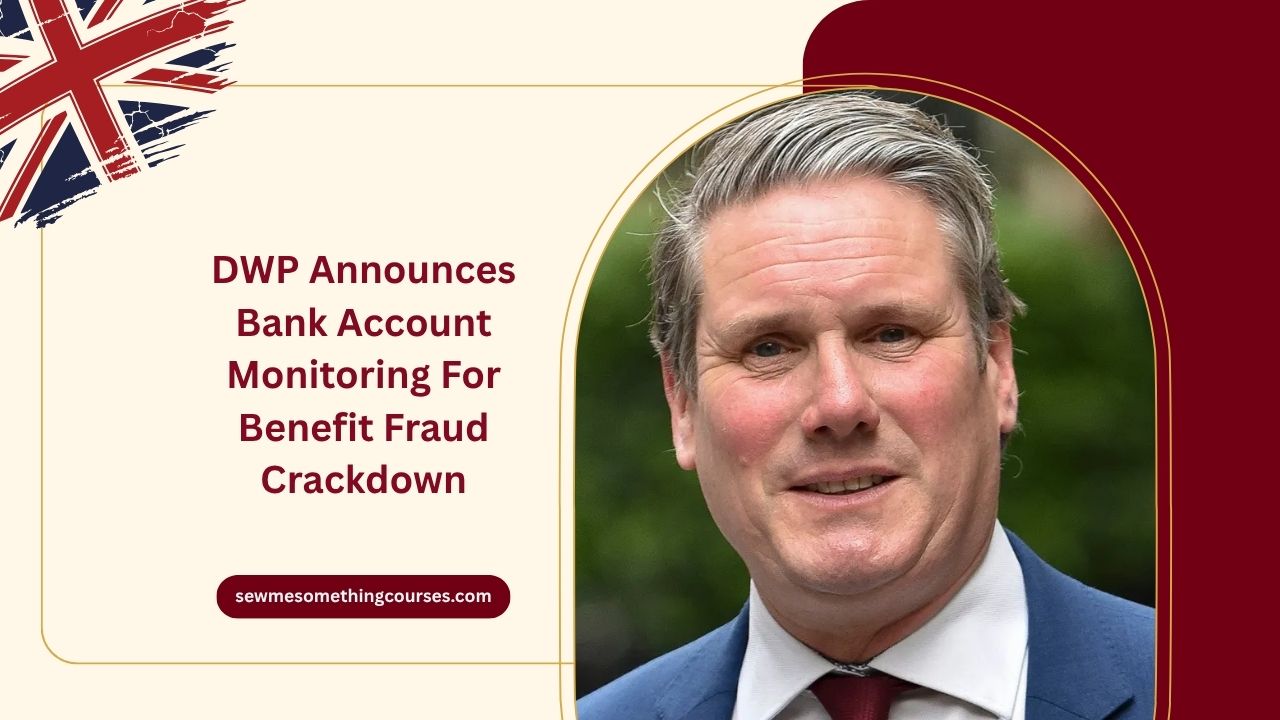The Department for Work and Pensions (DWP) has confirmed that from 2026, it will begin monitoring bank accounts as part of a wide-reaching effort to tackle benefit fraud.
This move is set to be part of the UK government’s most significant fraud crackdown in a generation, targeting those who improperly claim means-tested benefits like Universal Credit, Pension Credit, and Employment and Support Allowance. Here’s everything you need to know about this new measure.
The New Fraud Crackdown Measures:
The UK Government is enacting new legislation under the Public Authorities (Fraud, Error, and Recovery) Bill to combat benefit fraud, which is estimated to cost taxpayers billions annually.
This bill will enable financial institutions, such as banks, to flag potential fraud without sharing detailed transaction data. The goal is to help the DWP detect when a claimant exceeds eligibility thresholds for specific benefits.
What’s Changing and When?
From 2026, the DWP will begin implementing the Eligibility Verification Measures, which will allow banks to notify the department when claimants appear to exceed eligibility criteria—such as the £16,000 savings cap for Universal Credit.
These measures aim to prevent overpayments and uncover potential fraud.
| Measure | Details |
|---|---|
| Eligibility Verification | Banks can flag potential fraud but cannot share transaction data. |
| Threshold for Universal Credit | £16,000 savings limit for eligibility. |
| Fraud Detection Approach | A ‘test and learn’ approach will ensure the measures are applied proportionally and effectively. |
| Taxpayer Savings | £1.5 billion estimated savings over five years. |
How Will the Monitoring Work?
The DWP will not have direct access to claimants’ bank accounts. Instead, banks will be permitted to share limited information to help identify people who might exceed eligibility limits.
For instance, if someone’s savings surpass the threshold for Universal Credit, it can trigger a flag for the DWP to investigate further.
However, the information shared will exclude transaction data; the DWP will only receive alerts regarding potential eligibility breaches.
This new system will help the DWP prevent overpayments, which can lead to debt accumulation, and will also aid in the detection of fraud in a more effective manner.
Safeguards and Oversight:
As with any measure involving personal data, strict safeguards are in place. Banks will only share limited data, and there are legal and procedural protections to prevent the oversharing of transaction data.
The DWP will implement strong oversight to ensure these powers are used appropriately and proportionally.
Additionally, the DWP has developed a “test and learn” approach. This strategy will allow gradual implementation of these powers, which will be refined as the system evolves.
This approach ensures that the powers are used to effectively tackle fraud without overstepping privacy boundaries.
Fraud Recovery and Civil Penalties:
The UK government’s fraud crackdown is not limited to detecting fraud—it also includes robust recovery mechanisms.
For individuals who attempt to frustrate the recovery process, the DWP can apply civil penalties, such as £300 deduction orders. If all other recovery methods fail, the DWP can seek court orders to seize assets from those involved in fraudulent activities.
Georgia Gould, the Cabinet under secretary, highlighted that, while these powers enable the DWP to recover money directly from bank accounts and PAYE earnings, alternative recovery methods would be pursued if necessary. This ensures flexibility in enforcement.
Broader Impact and Enforcement:
The new fraud crackdown goes beyond just monitoring bank accounts. In addition to the measures already discussed, the DWP will introduce additional actions, including:
- Driving bans of up to two years for individuals who repeatedly fail to repay the money they owe to the state.
- Search and seizure powers to target criminal gangs defrauding the system.
- Collaboration with third-party organizations, such as airlines, to prevent individuals from claiming benefits while abroad.
The DWP’s new measures, starting in 2026, aim to create a more secure system that protects taxpayers’ money from fraud.
With enhanced powers to detect and recover overpaid benefits, these changes mark a significant shift in the fight against benefit fraud.
While the focus is on maintaining privacy, robust safeguards will be in place to ensure fairness and transparency.
FAQs:
When will the DWP begin monitoring bank accounts for fraud?
The DWP will start implementing the new monitoring measures from 2026.
What information will banks share with the DWP?
Banks will share limited data, such as whether a claimant exceeds eligibility thresholds for means-tested benefits.
What penalties will individuals face if they attempt to frustrate the recovery process?
Individuals can face civil penalties, including £300 deduction orders, and further enforcement measures may include asset seizure through court orders.

